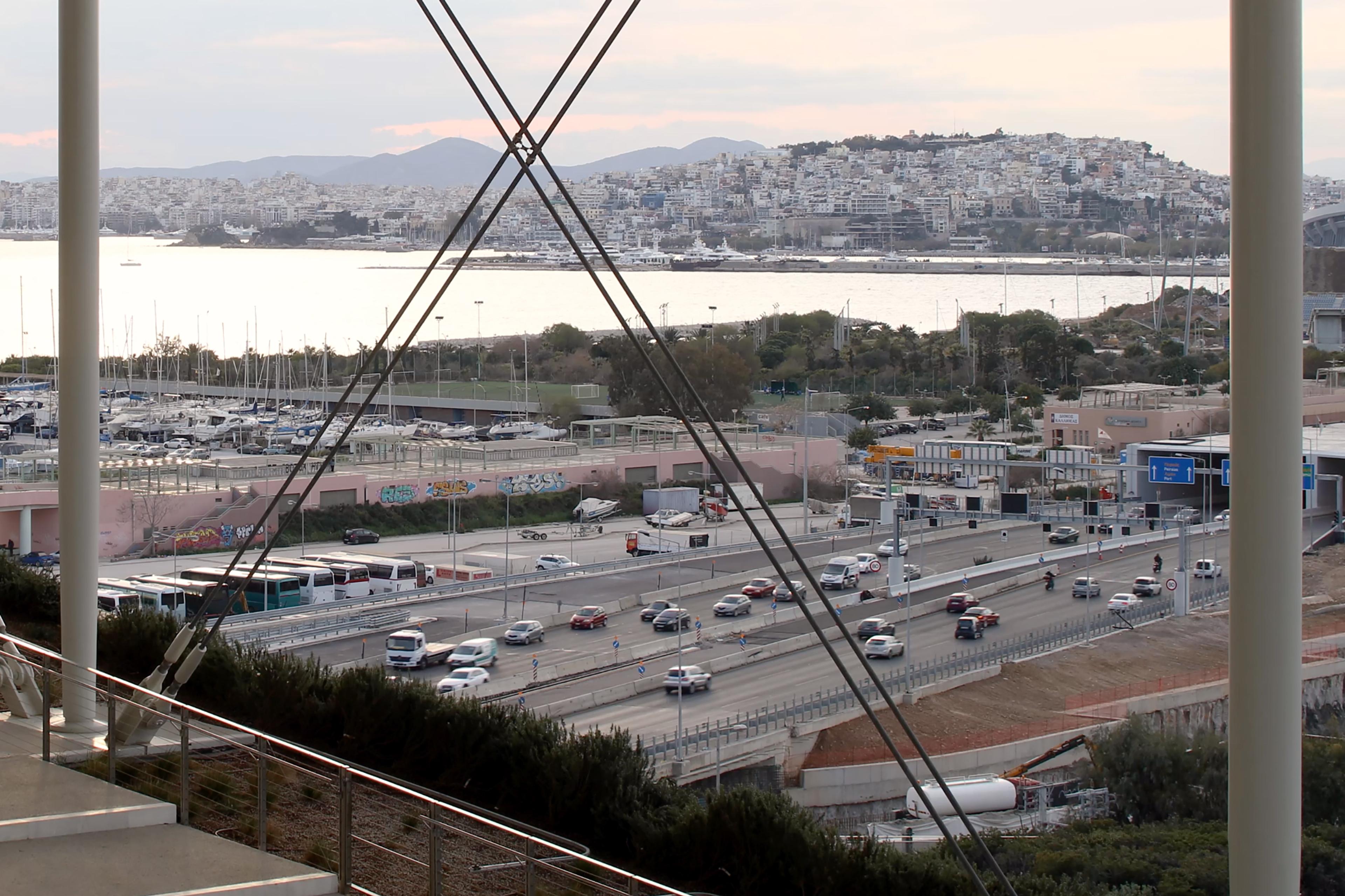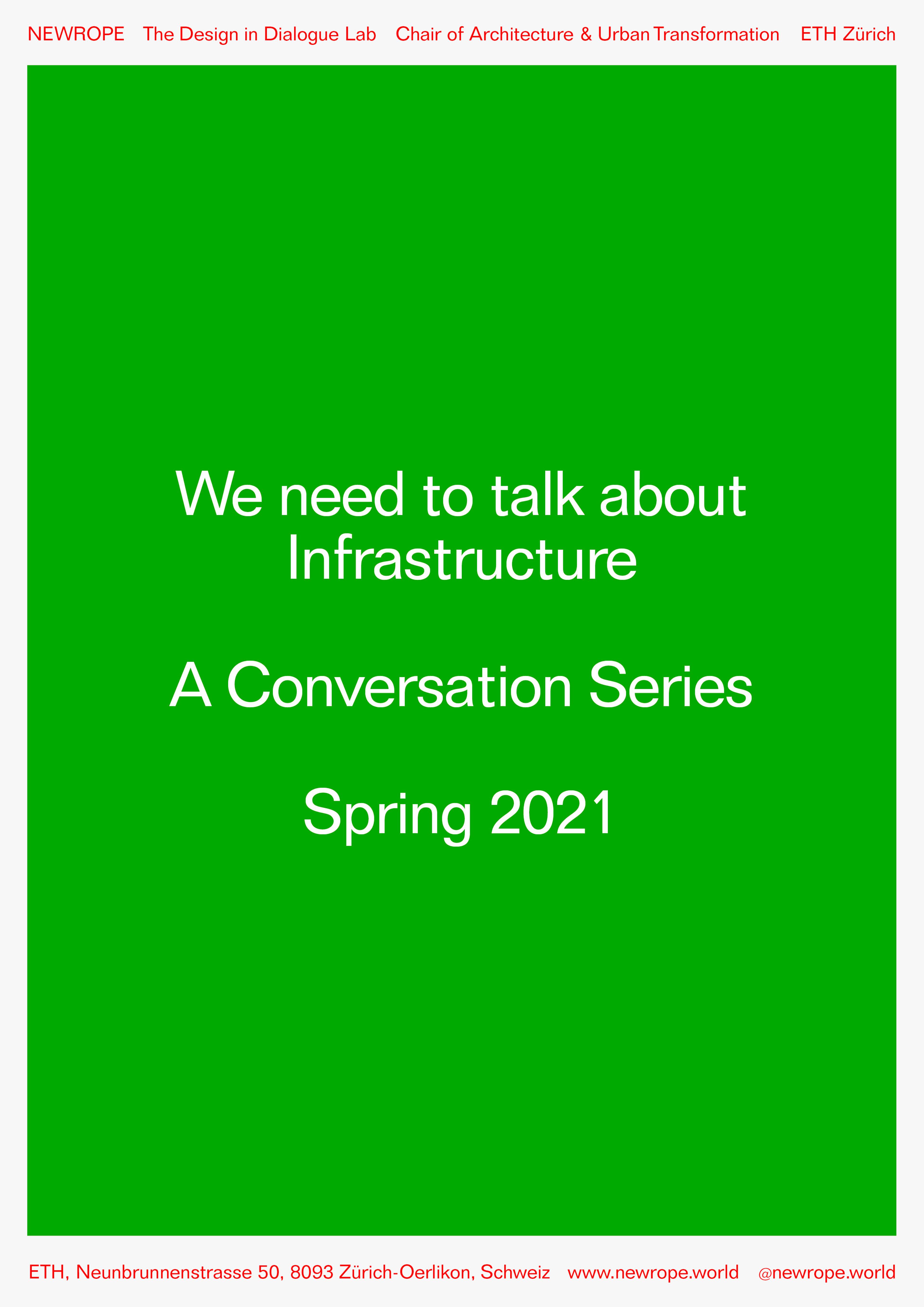We need to talk about Infrastructure – a conversation series
Our daily lives and the places we inhabit and traverse are strongly defined by infrastructures. Traditionally, infrastructures are often mono-functional, planned from an engineering logic and in many ways instrumental to extractive forms of urban change and ecological degradation. Most of our transportation, sewage, water and electric systems and communication networks were developed relatively recently, and are now rapidly expanding to the point of sheer ubiquity. Used intensively, the global constellation of roads, railways, bridges, tunnels, pipes and cables is in a permanent state of decay, requiring continuous care and regular upgrades and replacement. Despite, or due to their “extreme everydayness”, infrastructure until now has largely evaded a more critical discourse.
The conversation series "We need to talk about Infrastructure" aims to explore and discuss the concept of 'Adaptive Infrastructure'. This combination of words appears to be an oxymoron. However, the title hints at a much-needed effort to break with the idea of infrastructure as a heavy, inert and disruptive physical structure that facilitates (traffic) flows. Instead it proposes a search for ways of (re)interpreting infrastructure as an open and dynamic system that adapts to changing circumstances and enriches its environment, fosters connections and supports new forms of collectivity and co-existence. Or: how can we design infrastructure beyond engineering?
To talk about infrastructure is to address the socio-economic and ecological issues of our time. Whether it’s global projects, such as China’s efforts to create a new Silk Road or Google’s transatlantic fibre-optic cables, or the opening of a new metro line or datacenter in one city, these networks and nodes play a central role in where and how we live together. To see roads, railyards, stations, levees and other structures and systems, not as detached from, but as embedded in larger living environments, allows us to reconceptualise infrastructure as something that can help to connect and not divide and encourages us to design differently.
At the start of a multiyear program of projects exploring the potential of 'Adaptive Infrastructure', the NEWROPE Chair of Architecture and Urban Transformation invites a growing list of guests from the field of design, urban planning and other disciplines that deal with infrastructure, to share their knowledge and expertise. This Spring we kick-offed the conversation series with five practitioners who are well positioned to enrich and challenge us.
PROGRAMME
On March 30 (17:00 - 18:00) we welcomed architect and researcher Merve Bedir, who’s research focuses on human and non-human flows and infrastructures, and the incursion of advanced technologies into built environments.
On April 20 (17:00 - 18:00) we were joined by urban designer Stephen Gray who interrogates design’s contribution to and complicity with structural and infrastructural racism, such as the targeted community removal for urban-renewal and federal-highway programs.
On April 27 (17:00 - 18:00) we talked to Rafico Ruiz, a researcher and Associate Director, Research at Canadian Centre for Architecture, who - in his forthcoming book Slow Disturbance - theorizes how settler colonialism establishes itself through what he calls “infrastructural mediation”.
We continued the first series of conversations on May 11 (17:00 - 18:00) with (landscape) architects Anuradha Mathur and Dilip da Cunha who are trying to understand how infrastructure precedes design and promote a “design imagination that accommodates fluidity, openness, and complexity.”
We conclude the first series on June 8 between 17:00 and 18:00 CET with sociologists Sven Opitz and Ute Tellmann, who propose to re-envision "the political space of infrastructural collectivity: the European common needs a different understanding of space than the 'cross-border' and the 'long distance'. It needs an understanding of how to use the adjacencies for political articulations. Click here for the Zoom-link.
INFO
All conversations will take place online, via Zoom, on Tuesdays from 17:00 - 18:00. If you would like to receive more information, please contact Michiel van Iersel (vaniersel@arch.ethz.ch) or Lukas Fink (fink@arch.ethz.ch).

Faliro Bay in Athens, with the Port of Piraeus in the background. The coastline of Athens forms a patchwork of neighorboods, port areas and industrial zones, separated by roads, rail tracks and other infrastructure. While connecting Athens and Piraeus to other cities and countries, this infrastructure creates barriers and boundaries between neighborhoods, the sea and surrounding areas. During the the spring 2020 design studio, the NEWROPE Chair of Architecture and Urban Transformation focused on the Port of Pireaus, starting from such questions as how we can better embed these larger scale structures and systems in the urban fabric? And how can (rail)roads connect different parts of the city instead of dividing them? (Photo: Maxime Delvaux)
